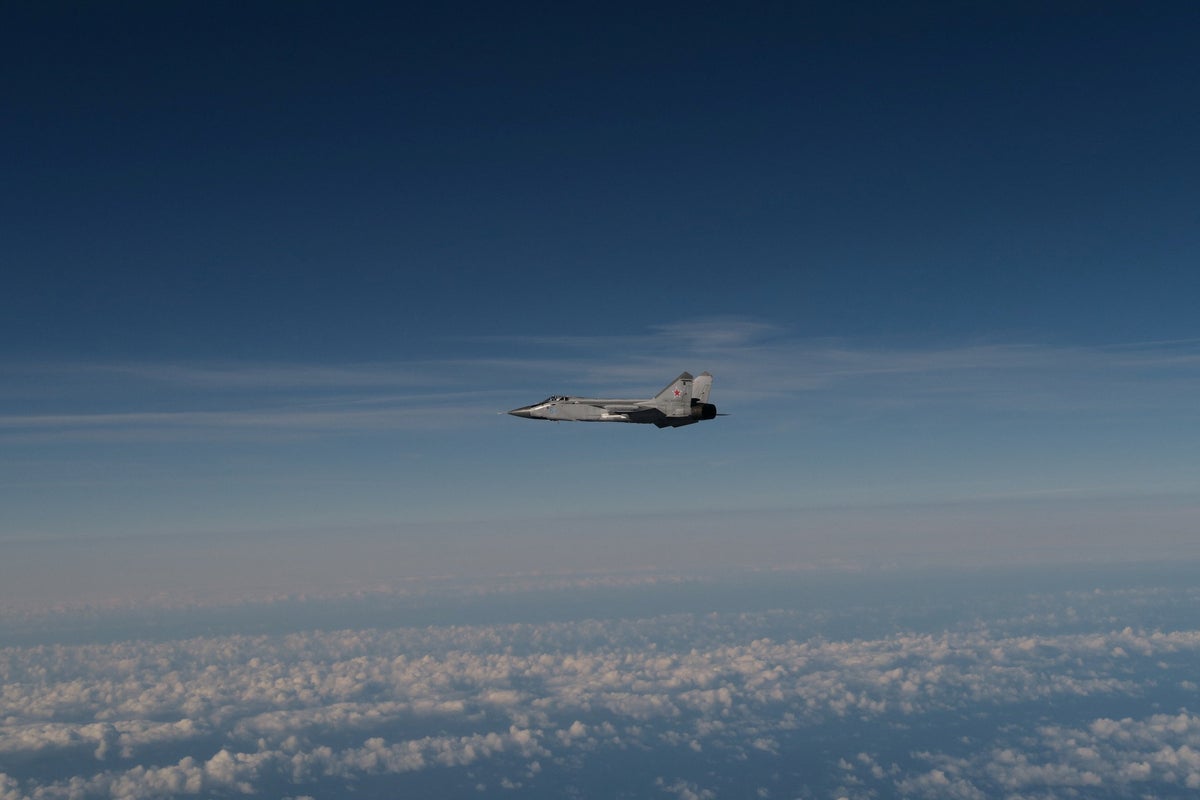Russia’s incursion into Estonian airspace was condemned as “reckless” and “provocative” by senior world leaders on Monday as the UN Security Council gathered in New York for an emergency meeting.
The urgent session was called after multiple incursions by Moscow into European airspace, including the entry of Russian fighter jets over Estonia for 12 minutes on Friday.
Representatives slammed Russia for “choosing escalation and provocation” in what they deemed a “threat to global peace and security”.
Moscow strongly refuted the allegations, claiming they had been portrayed as an enemy with “no facts or evidence” and that Europe was “letting its imagination run wild in relation to the threat from Russia”.
But foreign secretary Yvette Cooper warned Russia that its incursions into Nato territory risked a direct armed conflict and that the alliance would be ready to confront warplanes entering Nato airspace.
“Your reckless actions risk direct armed confrontation between Nato and Russia,” she told the meeting. “Our alliance is defensive but be under no illusion we stand ready to defend Nato’s skies and Nato’s territory.”
Her comments were backed by US representative Michael Waltz, who said the country would “defend every inch of Nato territory”.
But Russia’s representative to the UN Security Council, Dmitry Polyanskiy, used his statement to accuse European leaders of “Russophobia” and of levying “baseless” accusations.
“We won’t be partaking in this theatre of the absurd,” he said. “When you decide that you want to engage in a serious discussion about European security, about the fate of our common continent, about how to make this continent prosperous and secure for everybody, we’ll be ready.”
Just hours before the meeting, Putin offered US president Donald Trump an extension to a nuclear deal limiting the arsenals of both countries. Their current agreement, which caps the number of deployed warheads at 1,550 on each side, is due to expire on 5 February.
The proposed extension of one year would give Washington and Moscow more time to negotiate next steps, and comes as Mr Trump told reporters he would defend Poland if Russia attacks.
In a televised statement, the Russian president said the termination of the 2010 New START nuclear pact would be destabilising and could fuel the proliferation of nuclear weapons.
“To avoid provoking a further strategic arms race and to ensure an acceptable level of predictability and restraint, we believe it is justified to try to maintain the status quo established by the New START Treaty during the current, rather turbulent period,” he said.
“Therefore, Russia is prepared to keep adhering to the central quantitative limitations of the New START Treaty for one year after 5 February 2026.”
He urged the US to follow suit, adding the measure would “only be viable” if the US agreed to act in a similar manner. Washington has not yet commented on the proposal, but when asked in July about the looming expiration of the New START, Mr Trump noted “that is a big problem for the world, when you take off nuclear restrictions”.
Monday’s meeting marks the second gathering of the UN Security Council in as many weeks after a similar meeting was called following the incursion of Russian drones into Polish airspace.
Speaking at the session, EU chief Kaja Kallas said the multiple violations of European airspaces could not be considered an accident: “Instead, we see a pattern. Russia is testing European borders, probing our resolve, and undermining the security of the whole of Europe.”
It comes as world leaders gather in New York for the United Nations General Assembly. The war in Ukraine, among conflicts in Gaza and Sudan, is expected to be a major topic of discussion at the summit.

